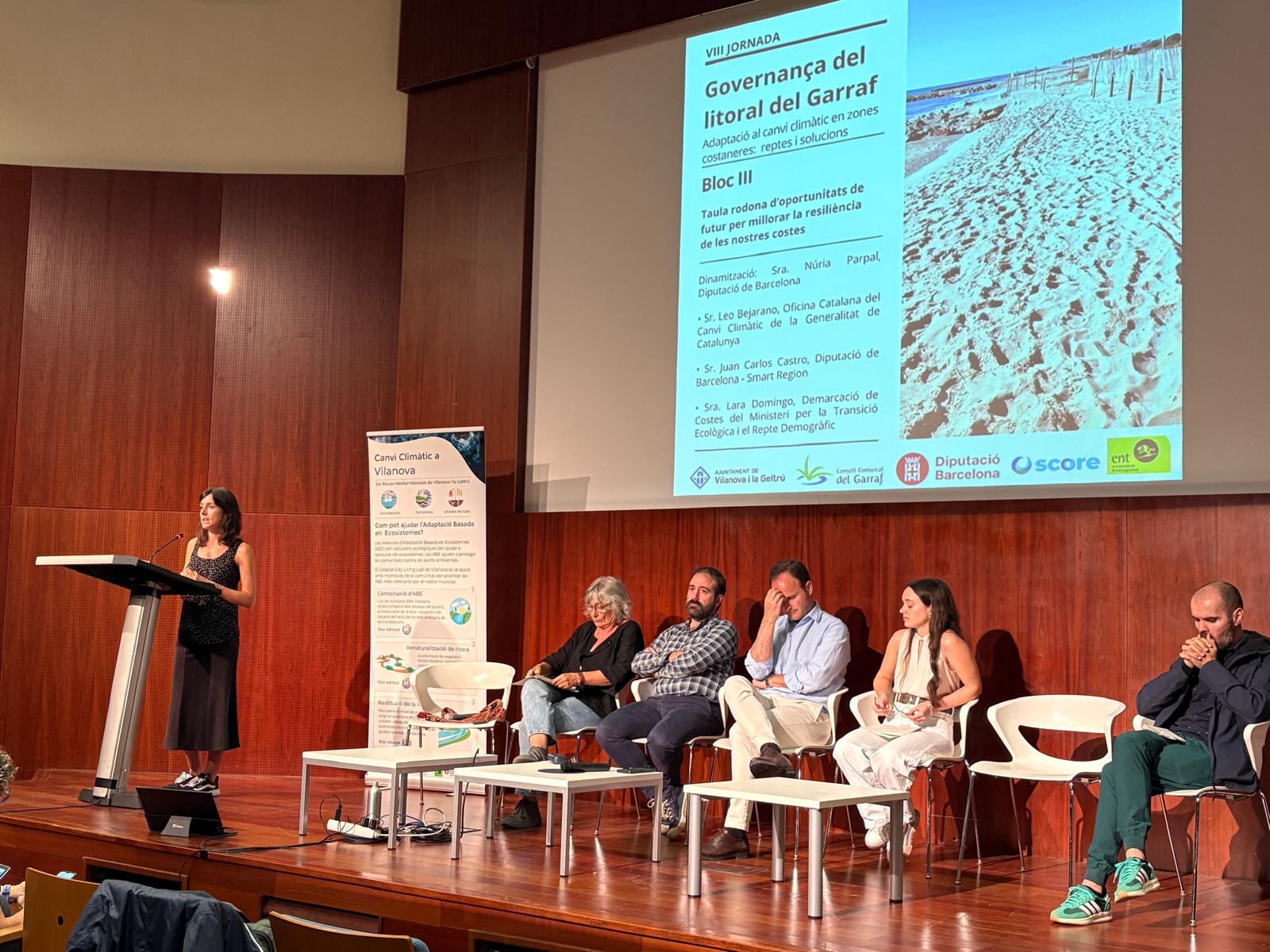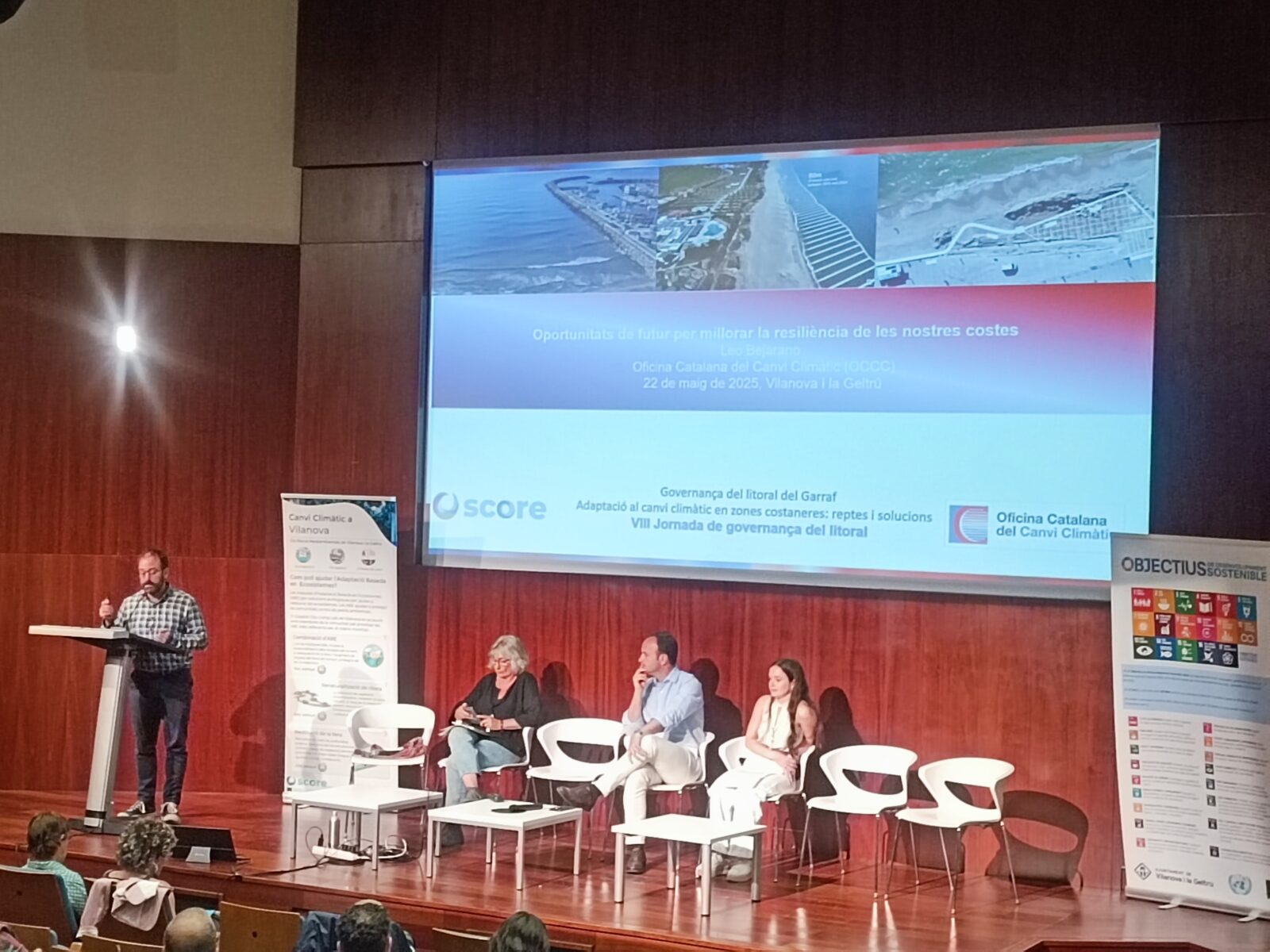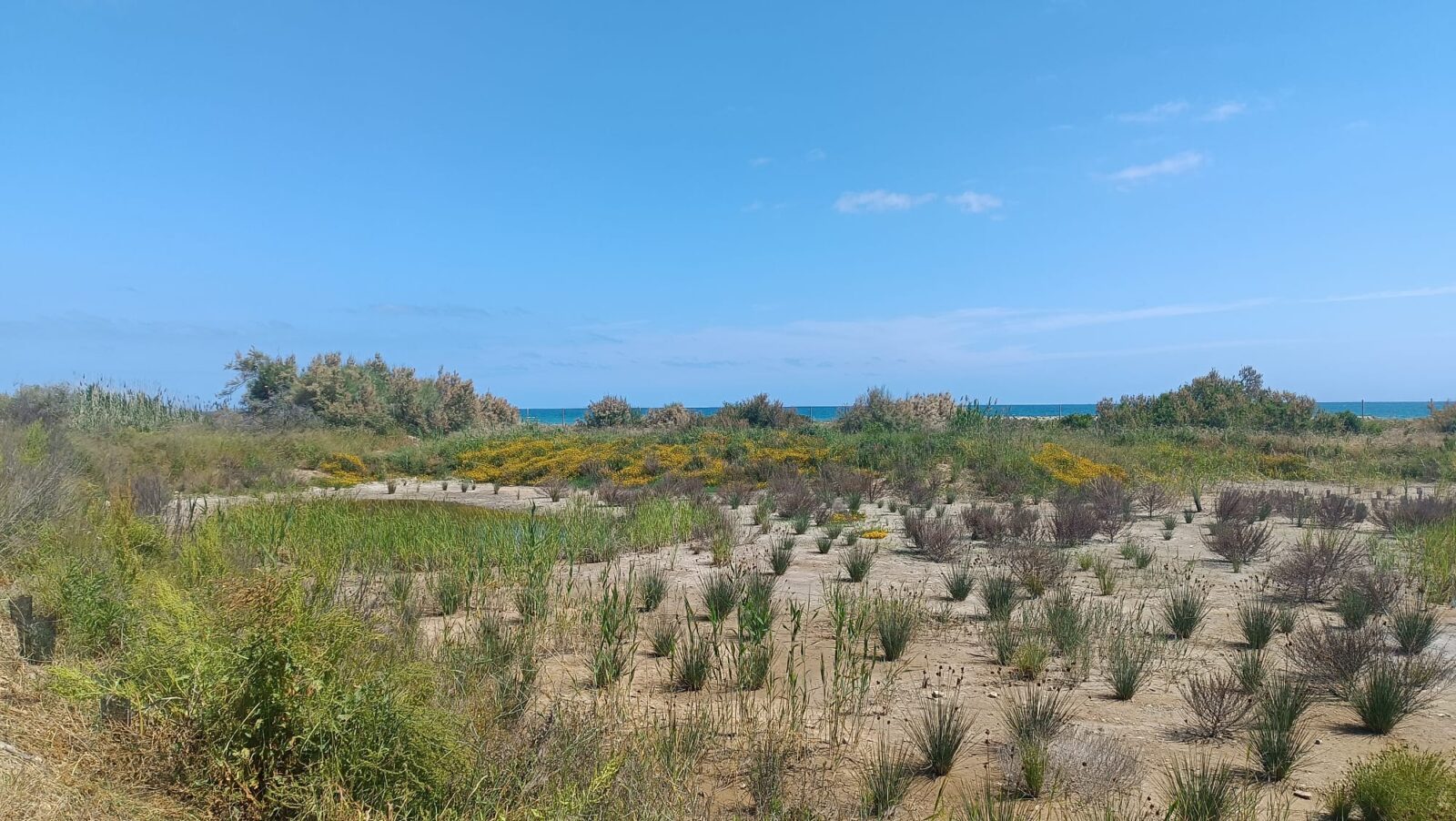Naider participated in the 7th Garraf Coastal Governance Conference, which took place in Vilanova i la Geltrú and was organised by the City Council, the Garraf Regional Council and the Barcelona Provincial Council. This edition focused on the challenges and solutions for adapting to climate change in coastal municipalities, based on the experience and results of the SCORE European project, of which we are a partner and which is nearing completion.
Following the opening ceremony, the organisations that comprise the Vilanova Living Lab — the City Council, the Provincial Council, and the firm ENT — presented the key findings of the project for the city.


This was followed by several discussion sessions that focused on the main challenges and opportunities of climate change adaptation strategies. One session focused on nature-based solutions, with the participation of the CCLL of Oarsoaldea, while another session was dedicated to sensorisation. The latter was moderated by our colleague, Sara Soloaga, and featured Gregori Muñoz from the Alguer de Mataró project, Joaquín del Río from the OBSEA observatory, and Ignacio Toledo and Luis Aragonés, who are representatives of the CCLL of Benidorm within the SCORE project.


The conversation was particularly enriching and identified several key conclusions for advancing climate adaptation from a sensing perspective. One of the most salient aspects was the urgent need to bridge the gap between available information and its practical application. While sensorisation provides valuable data, there is still a significant gap between the knowledge generated and its ability to be translated into concrete decisions. For this data to really drive action, it is essential that it is converted into clear and binding messages that directly influence decision making by public decision makers.
In this context, the importance of democratising science was emphasised, and three key pillars for achieving this were identified. Firstly, citizen science, which involves members of the public in collecting and monitoring data, not only increases the quantity of information (while ensuring its quality), but also fosters social awareness and can drive political transformation. Secondly, it was considered essential to develop communication strategies that would allow the key findings of the projects to be shared beyond the academic sphere, making them more accessible to citizens and administrations. Finally, the need to guarantee open and agile access to data was emphasised, as this would prevent duplication of efforts, enable existing knowledge to be utilised, and encourage collaboration between different stakeholders.
Another gap identified was the lack of social sensing tools, i.e. tools to capture information on perceptions, behaviours, and social habits. This type of data is crucial for designing more effective communication strategies that promote real changes in citizens’ lifestyles, and therefore in public policies.
Finally, the need for collaborative governance to facilitate the installation, maintenance and financing of sensors was emphasised. To guarantee long-term sustainability, stable alliances must be built between public administrations, research centres, companies and citizens. Effective cooperation of this kind is one of the main challenges hindering the consolidation of many projects launched to date.


Reflections were provided by Leo Bejarano (Climate Change Office of the Generalitat de Catalunya), Juan Carlos Castro (Smart Regions, Diputació de Barcelona) and Lara Domingo (Coastal Demarcation of the Ministry) at the end of the day, after which the ecological restoration action carried out by the CCLL of Vilanova in Platja Llarga was visited in situ. This is a practical example of a nature-based solution.
We would like to thank the organisers and everyone who participated in the event. Spaces for exchanging knowledge and ideas are essential for building collaborative networks and preparing ourselves to face the challenges of climate change. Only through collective work will we be able to anticipate, manage, and provide more effective and sustainable responses in our territories.




